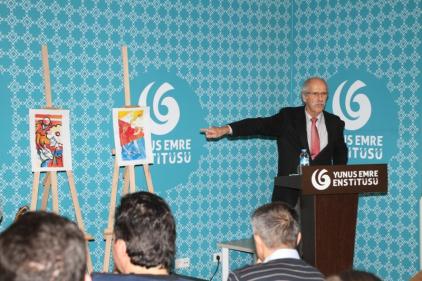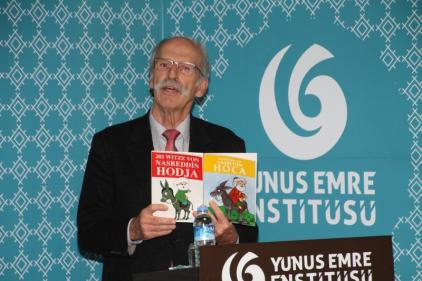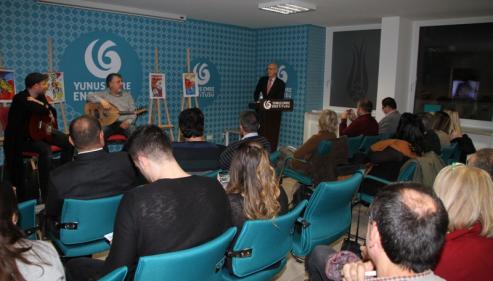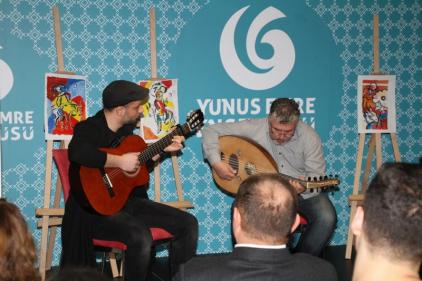Nasreddin Hodja Fan German Professor
German Prof. Dr. Martin Doehlemann described the results of the scientific research he conducted on Turkish humorous figure "Nasreddin Hodja" and the German humorous figure "Till Eulenspiegel" at Cologne Yunus Emre Enstitüsü.
Speaking at the conference held at Cologne Yunus Emre Enstitüsü, Dr. Doehlemann stated that research and artistic studies on these two characters, one born in East and one in West, led him to take more interest in Nasreddin Hodja.
Professor Dr. Doehlemann who wrote a book about these two characters said, "Like many people, I also grew up with Till Eulenspiegel, and later I discovered that there is a character similar to him in the Eastern-Orientalist culture, a symbol who possessed a particularly philosophic humour. This led to the idea of bringing together two symbols of humour with an artist friend. In our book, both characters meet and they get along very well because together they play pranks on the authority figures, people with title and the community. I looked for answers to questions as 'Who are these people? Did they really live? How was their senses of humour?'”
Prof. Dr. Doehlemann stated that he studied similar and different aspects of the duo and explored the intersections in his research, and spoke as follows:
"Till Eulenspiegel makes jokes based on action; he practices humour through actions. Nasreddin Hodja is a deep thinker and a scholar. Hodja is a figure that makes people smile while making them think and inspires them to think deep and about existence. In this context, I have discussed issues concerning the world, religious life and existence with critical approaches rather than innocent jokes known by all. These two figures with many anecdotes, agree in their impish behaviour and especially in their criticism without regard to title and authority.”
Prof. Dr. Doehlemann continued as follows:
“Tolerance begins with a smile. This means we smile at these symbols who live outside of social rules, and recognize their cleverness. We tolerate the pranks they play on other people. We can easily tolerate things that make us smile.”
Before the conference organised, Turkish and German guests were presented with examples of classical Turkish music.








